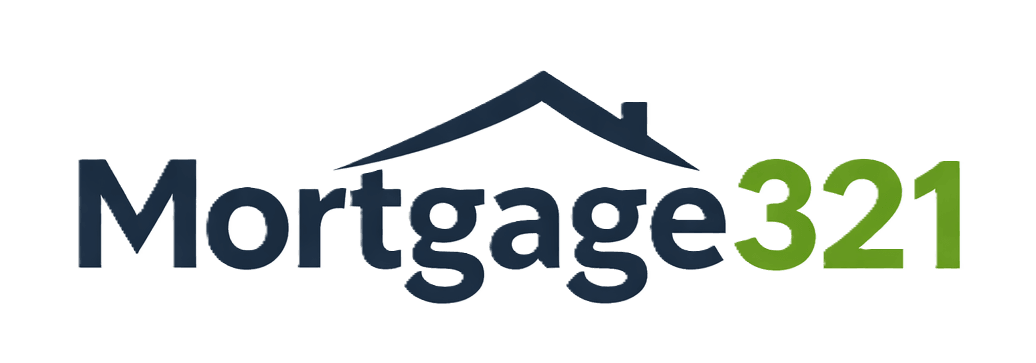Top 10 Most Common Mortgage Questions Answered
MP
In the world of mortgages, it's natural to have questions—especially if it's your first time applying or if your situation is unique, like self-employment or complex income streams. As a team with decades of experience, Mortgage321 has compiled answers to the most common mortgage questions, helping to demystify the process so you can move forward confidently. Let's dive into these FAQs and make your mortgage journey smoother and more informed!
1. What’s the Minimum Deposit Needed for a Mortgage?
The minimum deposit for a mortgage typically starts at 5% of the property’s value, but this can vary based on the type of mortgage and your financial situation. Some lenders may require a larger deposit for self-employed applicants or those with a complex financial profile. Generally, a larger deposit reduces your loan-to-value (LTV) ratio, potentially unlocking lower interest rates.
2. What is a Mortgage in Principle (MIP)?
A Mortgage in Principle (MIP), also called an Agreement in Principle (AIP), is an estimate from a lender stating how much they could lend you based on your financial details. It’s not a guarantee, but it shows sellers that you’re serious and gives you an idea of your budget. An MIP is valid for around 60-90 days and is typically non-binding.

3. How Long Does the Mortgage Approval Process Take?
The mortgage process generally takes between 2 to 4 weeks from application to approval, depending on your situation and how quickly you can supply the necessary documents. Factors like complex income, self-employment, or multiple revenue streams may lengthen this timeframe. At Mortgage321, we work closely with our clients to expedite the process, aiming for efficiency without compromising accuracy.
4. What Documents Do I Need for a Mortgage Application?
To start a mortgage application, you typically need:
- Proof of ID and address
- Recent payslips or proof of income (3 to 6 months)
- Bank statements (usually 3 months)
- Details of existing debts
- For self-employed applicants: SA302s or tax returns (usually 2-3 years)
Each lender may have specific requirements, so it's best to check or consult with a mortgage expert like those at Mortgage321.

5. How is My Credit Score Checked, and Why is it Important?
Lenders use your credit score to assess your financial reliability. A higher credit score may open up more competitive interest rates and options. While many online tools can give you a general idea of your score, lenders use specific credit bureaus. It’s wise to check your credit and address any issues before applying. At Mortgage321, we can offer guidance on boosting your score for mortgage success.
6. Can I Get a Mortgage if I’m Self-Employed?
Yes, self-employed individuals can get a mortgage. However, you may need to provide additional documentation, like 2-3 years of tax returns, SA302s, or an accountant's reference. Some lenders specialize in self-employed and complex-income mortgages. Mortgage321 has extensive experience in navigating these options, ensuring self-employed clients find tailored solutions.

7. What’s the Difference Between Fixed-Rate and Variable-Rate Mortgages?
A fixed-rate mortgage locks in your interest rate for a set period (e.g., 2, 5, or 10 years), ensuring predictable monthly payments. A variable-rate mortgage can change according to the lender's standard rate, meaning your payments might fluctuate. Fixed rates offer stability, while variable rates may provide flexibility and potential cost savings if rates fall.
8. How Much Can I Borrow?
The amount you can borrow depends on factors like your income, outgoings, credit history, and deposit size. Generally, lenders offer between 4 to 5 times your annual income. Speaking with a mortgage advisor can help you get a more accurate estimate based on your unique circumstances.

9. Can I Overpay on My Mortgage?
Many mortgages allow overpayments, which can reduce the term and overall interest of the loan. However, some lenders have restrictions or fees for overpaying. Mortgage321 can advise on mortgage products that offer flexibility, allowing you to pay off your mortgage faster without penalties.
10. What Happens if I Miss a Mortgage Payment?
Missing a mortgage payment can impact your credit score and may incur additional fees. Communication is key; reach out to your lender as soon as possible if you're facing difficulty. Many lenders have hardship programs or temporary solutions for financial issues. Mortgage321 is here to help you explore options and negotiate solutions in challenging times.

Final Thoughts
Whether you're a first-time buyer or a seasoned homeowner, having the right guidance is essential. Mortgage321 provides expert mortgage advice tailored to your unique needs, especially in complex and self-employed mortgage scenarios. Contact us today to explore how we can make your mortgage journey smoother, more transparent, and aligned with your financial goals.
Remember, a knowledgeable buyer is a confident buyer, and we're here to support you every step of the way.
